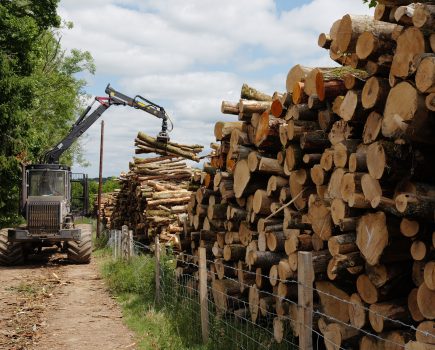As readers well know, the farming industry is steeped in tradition and is notoriously sceptical of change. However, whether we like it or not change is coming within the rural sector, and at considerable pace if the recent King’s Speech is anything to go by.
Aside from trying to fathom the evolving subsidy systems, grappling with volatile input costs and output prices and anticipating elements of an inevitable revamp of the tax system come the Autumn Statement earmarked for early September, we have now been told to brace ourselves for an increase in house building, to be delivered through a simplified planning system (good luck with that!), get set for no fault evictions of residential tenants (who will also have the opportunity to challenge rent reviews), return to a publicly owned railway network, embrace a publicly owned Great British Energy company, accept further devolution of decision making to local authorities and prepare our already confused 11 year-olds to vote, potentially, in the next General Election. And all of this is set within the new Labour Government’s mantra of reinvigorating the economy, stimulating growth and making Britain great again outside the European Union.
It is within this context that change appears now to be one of life’s constants, an inevitability even, much like the turning of the seasons, the light of day/the dark of night. Rather than resisting change, perhaps we have no choice but to embrace it and seek to prosper from the host of opportunities that can often arise along the way.
We must strive to overcome the fear of the unknown, the safety of surety and the stubbornness of the traditional farmer and landowner who often fight against the inevitable flow. To them I say nothing lasts forever and, as with mankind, perhaps the better option is to adapt to change to survive and potentially prosper from it. Otherwise, you run the risk of being left isolated and proverbially withering on the vine.
I accept that we all like to comprehend the likely route before embarking on any journey, but I’m not sure we’ll have the benefit of understanding the likely method of transport, let alone what might influence its effectiveness and efficiency along the way. Globally we have the Russians forming an alliance with China while NATO (with or without the support of the USA) seeks to expand.
Closer to home we have a change of government that in many cases has no alignment whatsoever to the makeup and political flavour of underlying authorities at the delivery end of the decision-making process. Take anyone living in Wealden, for example. They must now contend with a Labour Government, a Conservative MP, a Green/Liberal Democrat alliance at the helm of the district council and a county council dominated by independents. What hope of harmony is there in that?
So perhaps we should consider change within the realms of the only certainty being uncertainty and the only consistency being inconsistency. Indeed, we might never fully understand the game we are being asked to play but have no option but to commit to it regardless, and in so doing anticipate the likely change of rules and personnel part-way through.
In turn, having undertaken a holistic SWOT (strengths, weaknesses, opportunities and threats) analysis of your business to assess your current position, and having considered the lateral implications of tactics you might need to deploy in delivering it, we should all be making a plan, with a degree of flex set within it, to engage in playing the game that is ‘change’. In doing so be resolute throughout and you can but hope to come out as a winner in the end.
While this might be daunting to you, the reader, there are many professionals out there to assist in putting together an overarching strategy. Many have a wealth of experience and knowledge and, like me, own and run businesses with similar pressures, constraints and layers of red tape and compliance to tussle with daily.
While it might prove an expensive hour, or two(!), why not invite your land agent, accountant and solicitor to gather as one around the kitchen table to hear your current situation and circumstances, hopes, aspirations and concerns, after which time some ideas and options can be discussed to help you form a view and establish a plan to provide some direction of travel. They understand, are willing to help and, after all, need you to be successful if they are to support and grow their own businesses.
Essentially, we are all in this together. Sitting still and doing nothing is simply not an option for any of us any more. We must embrace and welcome change, which positively forces us to review and question constantly what we are doing. This in turn creates resilience, vibrancy, and longevity in many cases.
Indeed, within the South East farmers and landowners are blessed with a plethora of diversification opportunities that, if harnessed, can often reinvigorate a business and those working within it. In looking at the range of success stories throughout the region, consider all options to find your own route down the metaphorical slope in front of you. Like water poured from a bucket at the top, it will reach the bottom having invariably taken a different route every time. Nevertheless, it gets there eventually and so will you.
In my humble opinion, never has the phrase ‘fail to plan then plan to fail’ been so apt, so please read and take on board my advice and the thoughts and opinions of others within this feature. Thereafter, rather than simply putting this edition down and heading out to do your daily chores, please be resolute in making a plan and acting on it before it’s too late and change ends up consuming you.
For more like this, sign up for the FREE South East Farmer e-newsletter here and receive all the latest farming news, reviews and insight straight to your inbox.







